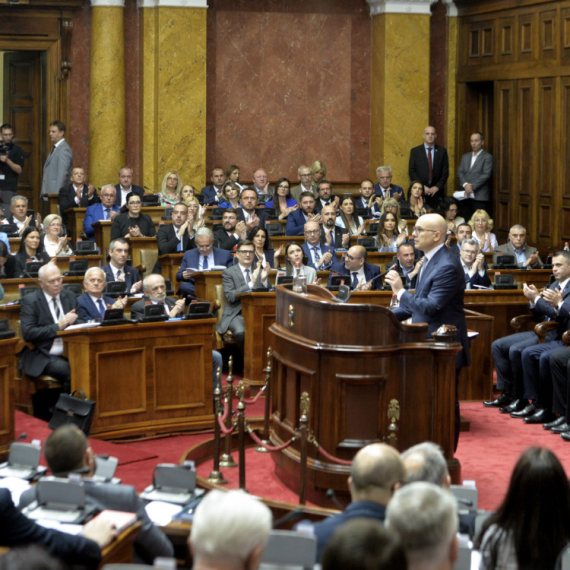Central bank chief: Region faces economic challenges
National Bank of Serbia (NBS) Governor Jogovanka Tabaković said on Friday the countries of South-Eastern Europe faced "a poor economic future."
Friday, 08.11.2013.
13:08

BELGRADE National Bank of Serbia (NBS) Governor Jogovanka Tabakovic said on Friday the countries of South-Eastern Europe faced "a poor economic future." According to her, this includes "pressures to pay off their foreign debt, worsening bank portfolios caused by problematic loans and challenges in EU integration." Central bank chief: Region faces economic challenges High public debt and need for fiscal consolidation are the chief challenges to overcome in order to avoid pressure on the balance of payments of the countries of Southeastern Europe, Tabakovic said as she addressed a conference in Belgrade, dubbed "Financial Systems in the Region." One of the key things is to avoid additional pressure from foreign exchange markets, because of the heavy dependence on exchange rates due to loans related to foreign currency, she said. "Recession and decreased credit activity have led to a faster increase in problematic loans, but Serbia has created reserves large enough to cover them," she pointed out. Serbia will adopt by the end of the year a strategy for the implementation of the international standards Basel 3 in the banking sector, which will involve plans, deadlines and the standards' implementation related to capital and liquidity, she remarked. Tabakovic stated she was "pleased the inflation in Serbia was dropping," adding that "the bad thing was that it was the result of low demand." (Tanjug) Tanjug
Central bank chief: Region faces economic challenges
High public debt and need for fiscal consolidation are the chief challenges to overcome in order to avoid pressure on the balance of payments of the countries of Southeastern Europe, Tabaković said as she addressed a conference in Belgrade, dubbed "Financial Systems in the Region."One of the key things is to avoid additional pressure from foreign exchange markets, because of the heavy dependence on exchange rates due to loans related to foreign currency, she said.
"Recession and decreased credit activity have led to a faster increase in problematic loans, but Serbia has created reserves large enough to cover them," she pointed out.
Serbia will adopt by the end of the year a strategy for the implementation of the international standards Basel 3 in the banking sector, which will involve plans, deadlines and the standards' implementation related to capital and liquidity, she remarked.
Tabaković stated she was "pleased the inflation in Serbia was dropping," adding that "the bad thing was that it was the result of low demand."


































Komentari 2
Pogledaj komentare